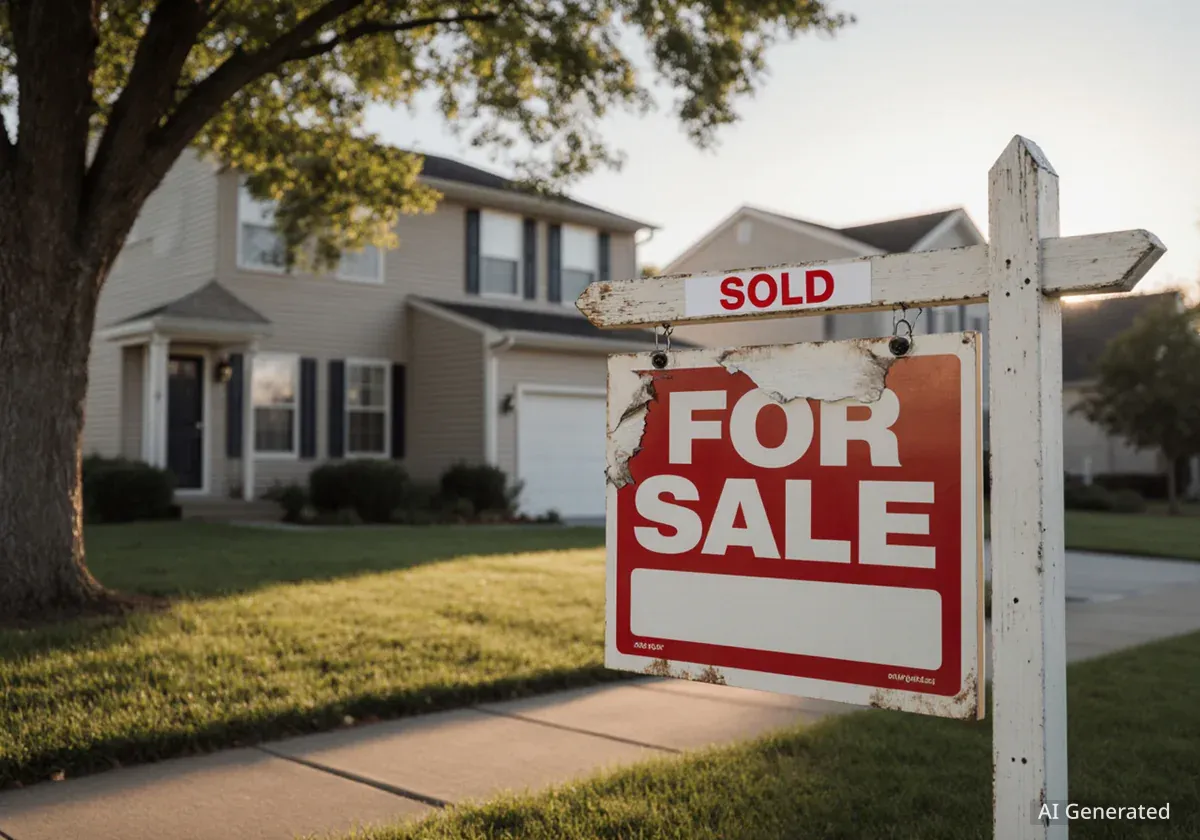Florida homeowners have access to a powerful financial tool that can significantly reduce their annual property tax bills while also providing robust legal protection for their primary residence. The state's homestead exemption offers a direct reduction in a property's taxable value, potentially saving residents thousands of dollars each year.
This benefit is not just about immediate savings; it also includes provisions that shield homes from most creditors and limit how much property assessments can rise annually, providing long-term financial stability for Florida's permanent residents.
Key Takeaways
- Florida's homestead exemption can reduce a home's taxable value by up to $50,000, lowering property tax bills.
- The "Save Our Homes" provision caps annual increases in a property's assessed value at 3% or the rate of inflation, whichever is lower.
- Homesteaded properties are protected from forced sale by most creditors, offering a significant layer of financial security.
- Homeowners must apply by March 1 and occupy the property as their permanent residence as of January 1 of the tax year.
Understanding the Financial Benefits
The primary appeal of the homestead exemption for many Florida residents is its direct impact on property taxes. The program works by subtracting up to $50,000 from the assessed value of a homeowner's primary residence before taxes are calculated.
This exemption is applied in two parts. The first $25,000 of the exemption applies to all property taxes, including those levied by school districts. A second $25,000 exemption applies to the property's value between $50,000 and $75,000, but this portion does not apply to school district taxes.
For a home valued at $75,000 or more, the owner receives the full $50,000 reduction on their non-school tax assessment, leading to substantial annual savings. According to real estate expert Alex MacWilliam, this benefit is a cornerstone of housing affordability in the state.
"For new homeowners, the exemption provides a clear financial incentive to establish permanent residency, while for longtime residents, it represents one of the most effective tools for maintaining affordability amid rising property values," MacWilliam explained.
The 'Save Our Homes' Cap on Tax Increases
Perhaps one of the most powerful components of the homestead exemption is the "Save Our Homes" provision. This state constitutional amendment places a strict limit on how much the assessed value of a homesteaded property can increase each year.
The cap is set at 3% or the percentage change in the Consumer Price Index (CPI), whichever is lower. This means that even if a home's market value skyrockets, its taxable value cannot increase beyond this modest cap.
How the Cap Provides Stability
In rapidly appreciating real estate markets, such as those seen in many parts of Florida, the "Save Our Homes" cap prevents homeowners from being priced out of their homes due to sudden, sharp increases in property taxes. It ensures tax bills remain predictable and manageable over the long term, regardless of market volatility.
This protection has become especially valuable in areas like Indian River County, where real estate appreciation has significantly outpaced income growth in recent years. It provides homeowners with peace of mind and long-term financial predictability.
A Shield Against Creditors
Beyond the tax benefits, Florida's homestead exemption offers a formidable layer of legal protection. Under the state constitution, a property designated as a homestead is shielded from forced sale to satisfy the claims of most creditors.
This protection means that in the event of financial hardship or bankruptcy, creditors generally cannot seize and sell a person's primary residence to cover outstanding debts. It is a critical safeguard that helps families remain in their homes during difficult times.
Important Exceptions to Creditor Protection
While the protection is broad, it is not absolute. The homestead exemption does not protect against foreclosure for non-payment of:
- Mortgages on the property itself
- Property taxes
- Liens from contractors who performed work on the home (mechanic's liens)
Despite these exceptions, the provision offers a level of security that is among the strongest in the nation, reinforcing the stability of homeownership in Florida.
How to Qualify and Apply
To be eligible for the homestead exemption, homeowners must meet specific residency requirements. The property must be their permanent, primary residence as of January 1 of the tax year for which they are applying.
Application Checklist:
- Deadline: The application must be filed with the local county property appraiser's office by March 1.
- Residency: You must be a permanent Florida resident.
- Ownership: You must have legal or beneficial title to the property.
- Documentation: Proof of residency is required. This often includes a Florida driver's license or ID card, a vehicle registration, and a voter registration card showing the homestead address.
Once the exemption is granted, it automatically renews each year, provided the homeowner continues to occupy the property as their primary residence. It is the homeowner's responsibility to notify the property appraiser of any change in eligibility, such as renting out the property or moving to a new primary residence.
Understanding and utilizing the homestead exemption is a key part of long-term financial planning for homeowners across Florida. It combines immediate tax relief with crucial protections against market fluctuations and financial distress, strengthening the foundation of homeownership in the community.





